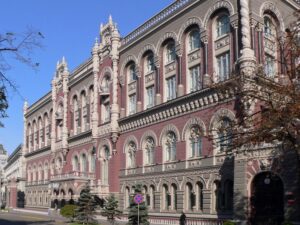
Ukrainian hotels in the Carpathians are expected to be fully loaded for the New Year period; as of the middle of November, up to 50% of rooms have been booked, hotel operators reported.
“The New Year period cannot be taken as a basis in predicting the dynamics of reservations. New Year is a traditional time of travel. All Ukrainian resorts (Bukovel, Drahobrat, Truskavets, etc.) are occupied for New Year. People plan New Year’s holidays in advance, so it is already difficult to find vacant rooms,” Executive Director of Ribas Hotels Group Andriy Marenchuk told Interfax-Ukraine.
According to him, the depth of booking is in line with last year’s indicators, but the number of guaranteed bookings has decreased.
“There was a request from guests for free cancellation of reservations. This is due to COVID-19 restrictions, the political situation and the impossibility of planning,” he said.
According to the hotel operator Reikartz Hotel Group, clients are gradually returning to long-term planning of their holidays: as of mid-November, the occupancy of resort hotels for the New Year and Christmas period is more than 50%. At the same time, the booking period is on average five days or more.
“In Ukrainian Carpathians, they are booked for five or more days. Often such a trip is considered by guests as a full-fledged winter vacation. Hotels for recreation near large cities are more saturated with reservations for 3-4 days,” Head of the resort department at Reikartz Hotels & Resorts Christina Kahuy said.
While hotels in western Ukraine show high occupancy rates, the Black Sea region is facing a difficult period, President of the Ukrainian Hotels and Resorts Association (UHRA) Iryna Sidletska said.
“We are entering a low season, and a difficult period is coming for Black Sea hotels: we predict an average of 25-30% occupancy for the next three months, and only at the expense of a business tourist. At this time, hotels in western Ukraine are gradually recovering due to the New Year holidays and the season of winter holidays,” she told the agency.
As reported by hotel operators, prices for hotel accommodation will rise slightly, based on the increase in utility rates. According to the Reikartz Hotel Group, the price increase for the New Year period averaged 10%.
As reported, the owners of hotels at ski resorts of Ukraine will be fined for the lack of documents confirming the COVID-19 status of tourists (vaccination certificate, negative PCR tests or a certificate of recovery).
Earlier in November, UHRA announced 100% vaccination of employees of most categorized hotels in Ukraine.

Turkey is preparing to supply at least 20 more Bayraktar-TB2 attack drones to Ukraine, Bloomberg reports, citing sources in Turkish government and military-industrial circles.
The Bayraktar company has sold Ukraine “dozens of drones along with control stations and missiles” since 2019, and “orders for at least two dozen more drones are under development,” Bloomberg wrote.
A source in the Turkish government also told Bloomberg that new deals are under development, including the joint production by Turkey of carrier rockets such as the Ukrainian Zenit-2. It could help Turkey develop ballistic missiles, the agency said, although a senior Turkish official said “Ankara has no such intentions.”
In September, defensenews.com reported that Ukraine and Turkey were preparing a contract for 24 Bayraktar-TB2 drones.

Ukraine International Airlines (UIA) in December launches direct flights on the route Odesa-Ivano-Frankivsk-Odesa.
According to the press service of the company, regular flights in this direction will be operated on December 25, January 8 and on Sundays starting from January 16.
In addition, on this flight, in addition to the baggage allowance, UIA provides the opportunity to carry one piece of ski equipment.
There are currently no direct flights in this direction.

The state budget for 2022 provides for UAH 319.2 billion of financing to the Ministry of Social Policy.
“On December 2, the Verkhovna Rada passed at the second reading the law on the draft state budget for 2022. The Ministry of Social Policy envisages expenditures in the amount of UAH 319.2 billion to finance social programs under 30 budget programs,” the press service of the Ministry of Social Policy said.
In particular, UAH 200.6 billion is provided for pensions, additional payments to military pensioners, recalculation of pensions for liquidators of the Chornobyl nuclear power plant accident, expansion of the president’s program for age-related additional payments to pensions, and establishment of a minimum pension payment for people over 70.
Also, over UAH 38 billion will be allocated for the program of benefits and housing subsidies, and UAH 66.6 billion for social benefits.
In addition, the program of social protection of citizens affected by the Chornobyl disaster has been increased to almost UAH 3 billion.
Among other things, in 2022, about UAH 2 billion is provided for technical means of rehabilitation for people with disabilities.
“The state budget for 2022 provides for targeted social investments. In particular, almost UAH 100 million will be allocated for a new program that will help low-income families start their own businesses and gain economic independence,” the statement said.
Also, the budget provides for UAH 235.9 million, which the state will provide in the form of a subvention to communities for the development of a network of support and social services for victims of domestic violence.
In addition, local budgets will receive UAH 810 million to provide housing for orphans and the development of family forms of upbringing in 2022.

The result of a more coordinated work on the return of funds from failed banks may be an increase in the partial voluntary repayment of debts by former owners, First Deputy Governor of the National Bank of Ukraine Kateryna Rozhkova has said.
“What can happen and what we would like – perhaps the owners to some extent will be ready to voluntarily close debts,” she told Interfax-Ukraine, answering the question about the implementation of the paragraph of the Memorandum with the IMF on strengthening work on the return of assets of failed banks.
Rozhkova recalled that a working group was created at the government level, headed by the Prime Minister, which includes the governor of the National Bank and the head of the Deposit Guarantee Fund, which is engaged in boosting work on the return of assets.
“In fact, you don’t need to invent anything new, because PrivatBank has already passed a certain path: there are courts in Western jurisdictions, tools for how to do this – through courts in Ukraine or abroad,” the representative of the National Bank said.
Rozhkova said that all the documents that the NBU had, confirming certain abuses, were transferred to law enforcement agencies. According to her, the Deposit Guarantee Fund conducts due diligence with the involvement of audit companies to determine where and how assets were withdrawn for each of the banks, according to the schedule. Further, claims are being prepared, which should be transferred either to courts, or to law enforcement agencies here, or to other jurisdictions.
“I will also say an unpopular thing, but it is true: those banks that left the market have assets that they lost in Donetsk and Crimea [in the occupied territories]. And this was not a withdrawal of funds. There are assets that have ceased to be serviced when the hryvnia sharply devalued. Collaterals depreciated, loans increased. It cannot be said that the entire volume is the fault of shareholders. It is necessary to calculate, prove, divide, and where it is provable, move the traditional way,” Rozhkova said.
As reported, according to a memorandum with the IMF, by the end of December this year, the Prosecutor General’s Office is to publish a semi-annual report on the outcomes of criminal proceedings against former bank owners, managers and other related parties in each resolved bank since the beginning of 2014, with aggregate data on the number of persons investigated, tried, and convicted as well as the amount of fines and damage recovered.
The next benchmark in this area is the publication of a asset recovery strategy paper and an action plan for the return of assets of failed banks by the end of February 2022.

The owners of hotels in ski resorts will be fined for the tourists not having documents confirming their COVID status (vaccination certificate, negative PCR tests or a certificate of recovery), Health Minister Viktor Liashko said.
“If visitors or employees do not have the necessary documents, the owner of the establishment may be held liable under the article ‘Violation of the rules of quarantine of people’ of the Code of Administrative Offenses of Ukraine. It regards a fine from UAH 34,000 to 170,000,” he said at a briefing on Thursday.
Liashko said that at ski resorts “only those people who have been checked for the presence of COVID documents are allowed to provide services.”
“Adult visitors and clients on winter vacations must have proof of vaccination against COVID-19 or testing negative or recovery,” he said.
The Minister noted that after consulting with specialized associations, the Ministry of Health recommends checking COVID documents during check-in at a hotel or when buying a ski pass.
Visitors to the resort are advised to assign a unique mark, such as a sticker, to identify that a person’s documents have already been verified. Also, the mark should indicate who exactly issued it.
“This is necessary to avoid repeated checks of documents and to enable the use of related services: cable cars, street fairs and other services,” he said.